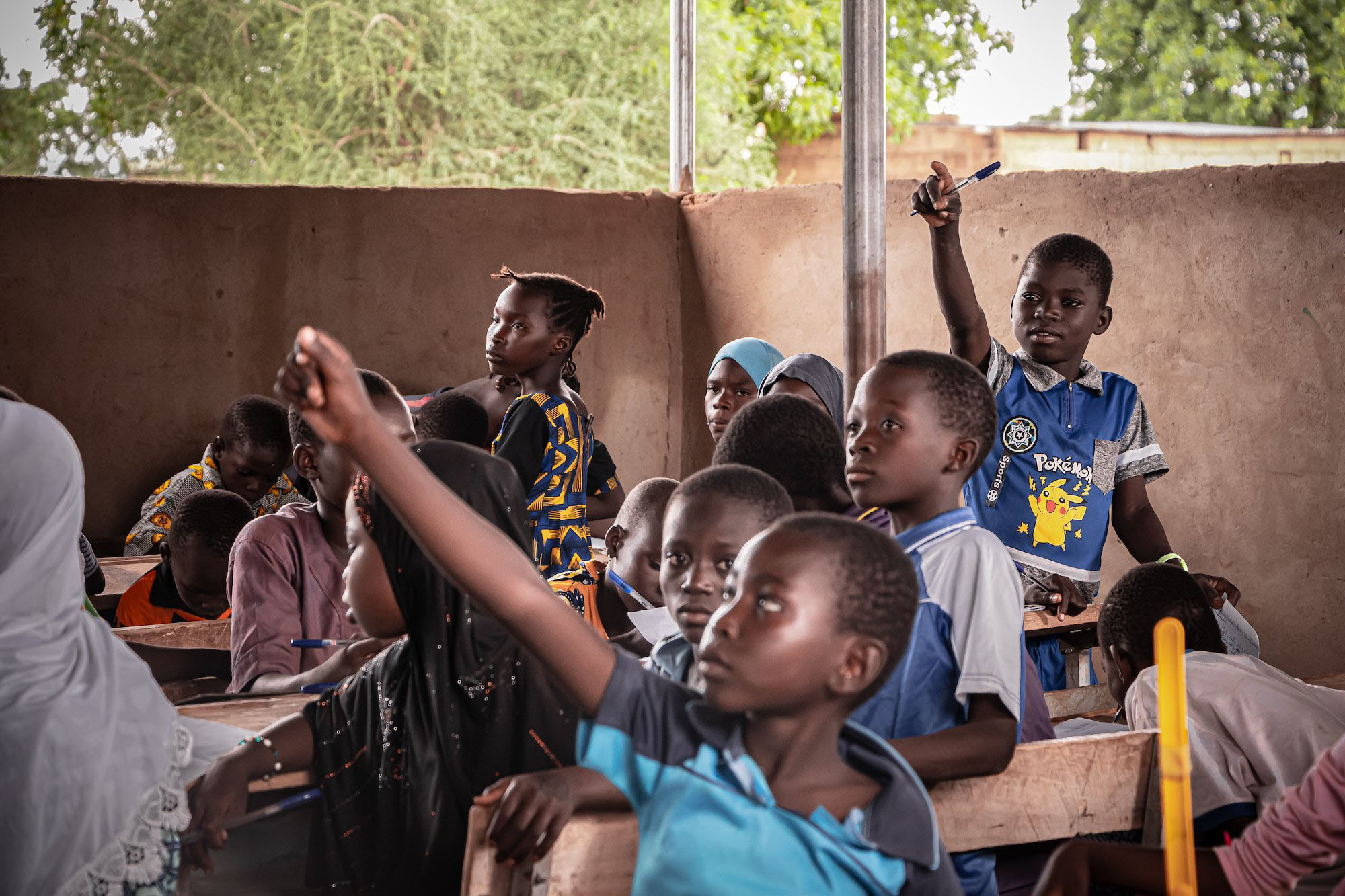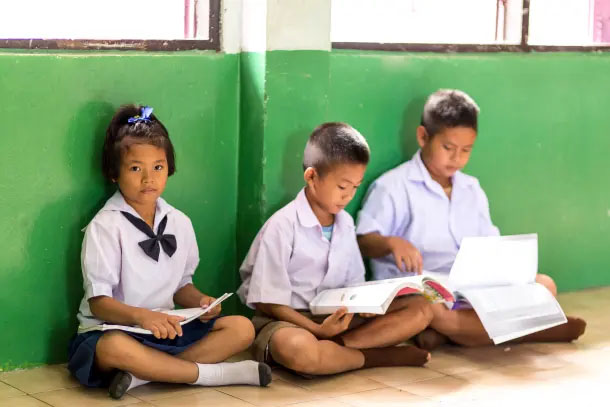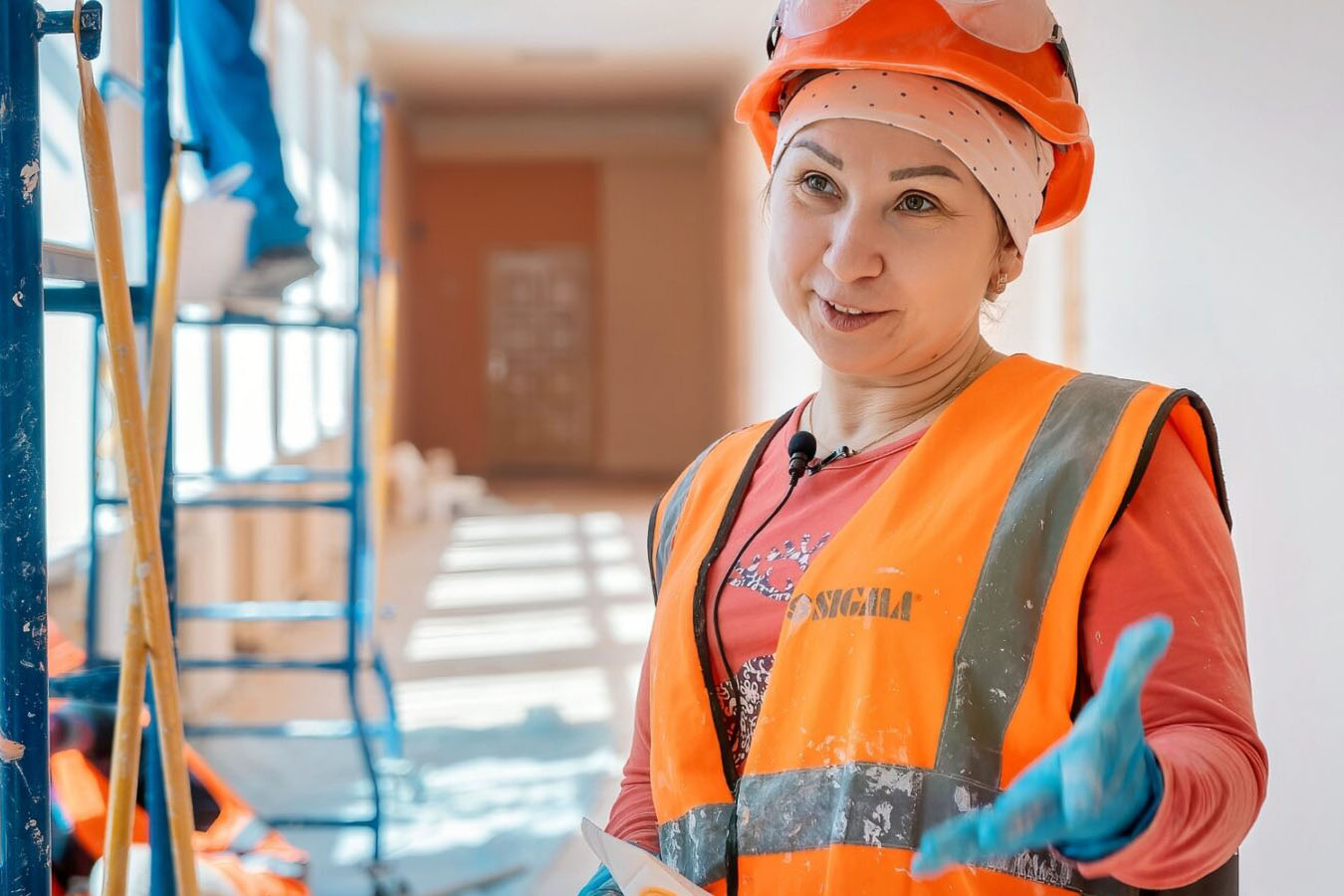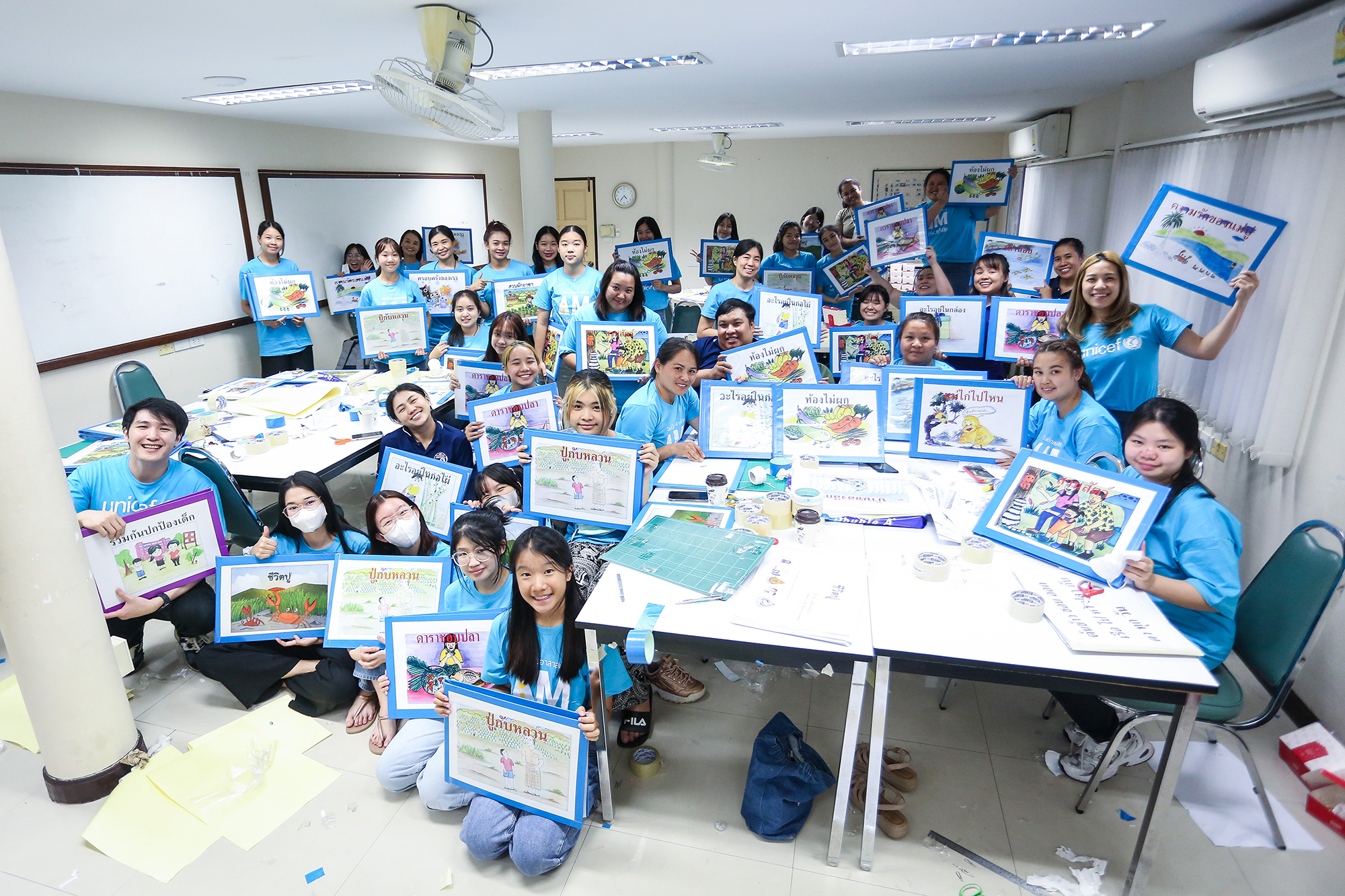For over 20 years, UNOPS has assisted the Argentinian government in advancing educational outcomes and ensuring inclusive learning opportunities through technical support, fund management, and transparent procurement processes.
Éducation
Languages play a vital role in education and sustainable development, facilitating knowledge transfer and cultural preservation. With around 8,324 languages worldwide, many are endangered due to globalization. The 25th anniversary of International Mother Language Day (21 February) highlights ongoing efforts to preserve linguistic diversity and promote mother tongues, emphasizing their importance in safeguarding cultural heritage. Established by UNESCO this day promotes inclusive societies and supports the preservation of non-dominant languages, ensuring equitable access to education for all.
Joseph Yambo, in his sixties, lives in Fada N’Gourma, in eastern Burkina Faso. An attack on his village in 2019 turned his life upside down. He lost his wife after fleeing, and his eldest daughter was forced to drop out of school to care for the family. She joined a radio education programme set up by the Government and implemented by the charity Children Believe. The programme offered her a second chance. Like Joseph, more than 2 million people in Burkina Faso – about 10 per cent of the population – had to flee their homes due to the security crisis affecting the country since 2019. The violence also forced thousands of schools to close. The Government reports that more than 1 million people returned home in the last year, and more than 2,000 schools reopened, but urgent needs remain. The Regional Humanitarian Fund for West and Central Africa, managed by OCHA, has invested in education projects to address the needs of displaced children.
2025 marks 100 years of quantum mechanics and has been declared by the UN General Assembly as the International Year of Quantum Science and Technology. This global initiative highlights quantum science's transformative role in addressing challenges like clean energy, health, climate action, inequality reduction and economic growth. Through global cooperation, education, research, and innovation, quantum technology offers solutions to improve lives and achieve the Sustainable Development Goals. Join the worldwide celebration of quantum science's impact and potential throughout 2025!
Every first Thursday of November marks the International day against violence and bullying at school which highlights global efforts to combat school violence and cyberbullying.
Despite progress, 122 million girls remain out of school, inspiring a video for the 2024 International Day of the Girl.
In the heart of Kharkiv, a school that once brimmed with life and energy has become a quiet monument to the challenges faced during war. The playground stands mostly empty, serving as a quiet testament to the devastating impacts the war has had on this school and the surrounding communities. Despite being struck three times, the school has been repaired through the School Repairs in Ukraine project, funded by the European Union and implemented by UNOPS. The restoration of this school is part of a broader effort to repair educational facilities across Ukraine, with plans to restore over 75 schools in total.
Ibrahim Abdulrahman was the top scorer in Sudan's high school exams in 2020. The war in Sudan has disrupted his dream of becoming the country's Minister of Agriculture and the education of millions of young people in a country where more than 90% of school-age children have no access to formal education. More than 10 million people have fled their homes in Sudan since the outbreak of war in 2023. The unprecedented influx has strained community resources and public services in Sudan's White Nile State. UNHCR is providing life-saving assistance to displaced people, including food, water, health care and cash.
There are 250 million girls and boys currently excluded from access to education. A new UNESCO report reveals that the costs to society add up to $10 billion a year globally. The report estimates that reducing the proportion of school dropouts or those without basic skills by just 10% would increase annual GDP growth by 1 to 2 percentage points. Education therefore appears to be one of the best investments a country can make. To achieve the goal of quality education for all, the UNESCO report provides 10 recommendations, including providing free, publicly-funded primary and secondary education, smaller class sizes, and qualified, motivated teachers.
On the surface, play may seem like it’s all about having fun, but it’s far more than that for babies and toddlers. It’s about learning and building important life skills – from problem solving to expressing ideas – and strengthening the bond between you both. UNICEF teamed up with the LEGO Foundation to explore the science behind how you can help your child grow and develop during these playful interactions. The good news is that children don't need expensive toys to play and learn. Here are 7 toys you can make at home to help get you started and here is how you can turn everyday routines into learning opportunities.
Empowered women lead school restoration amidst Ukraine's conflict, offering hope and opportunities for a brighter future.
Despite women now constituting 40% of high-skill occupations worldwide, their involvement in ICT-related fields remains disproportionately low. This year's International Girls in ICT Day celebrations emphasize the crucial necessity for influential female role models in science, technology, engineering, and mathematics (STEM) careers. The 2024 event, under the theme of "Leadership," highlights the importance of exposing girls and young women to leadership roles in STEM, aiming to inspire them and dismantle barriers that impede their advancement. Let's support #GirlsinICTday!
Released for 2024 International Women’s Day, “Her Education, Our Future” is a documentary film following the lives of Anee, Fabiana, Mkasi and Taina – four young women across three continents who struggle to fulfill their right to education
Multilingual education policies, highlighted by this year's International Mother Language Day (21 February) are crucial for inclusive education and the preservation of indigenous languages. Research underscores the benefits of using learners' native languages in education, fostering better learning outcomes and self-esteem. Multilingual education not only promotes inclusive societies, but also aids in preserving non-dominant, minority, and indigenous languages. It is a cornerstone for achieving equitable access to education and lifelong learning opportunities for all individuals.
The core message of the new UNESCO Recommendation on Education for Peace, Human Rights and Sustainable Development is that education plays a transformative role in shaping a peaceful future for all.












